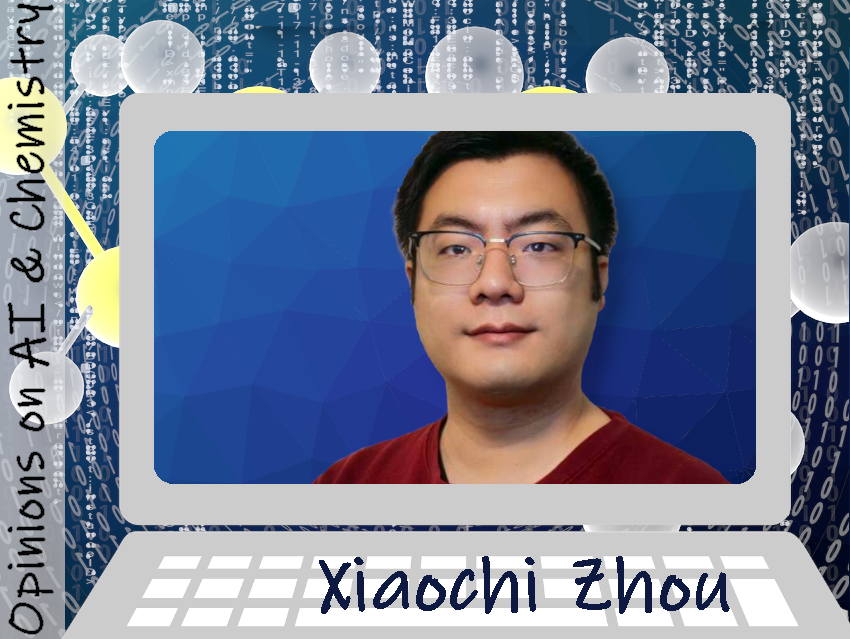The intersection of chemistry and artificial intelligence (AI) is a fascinating area that attracts a lot of attention in both research and industry. We talked to people working in the field about the potential of AI to revolutionize chemical research, but also concerns, (current) limitations, and ethical implications for chemical applications. We also asked for ideas to try or experiment with, as well as useful articles and videos for beginners and advanced users.
Dr. Xiaochi Zhou, University of Cambridge, UK, works on Semantic Web technologies, knowledge graphs, natural language processing, question-answering systems, and blockchain technologies.
What fascinates you about AI?
One thing about AI is that it has significantly increased productivity in many aspects, especially by helping human beings overcome their limitations. In my personal opinion, we, as human beings, are still rather primitive. One example is that spoken language probably developed 150,000 years ago, written languages probably developed more than 5,000 years ago, and painting, which expresses information in 2D images, has a history of about 40,000 years. However, today, most of us still communicate with each other using these methods. From turning ideas into something others can receive and understand, you need to articulate, write, speak, draw, and so on. It’s a bit like spending an hour baking a cake but spending twice the time or even more making the cake box.
When AI comes into play, starting to recognize items in pictures, understanding words, and even generating high-quality images and texts, it truly frees us, especially academics, to focus on coming up with good ideas instead of spending excessive time communicating them.
Is there anything we should fear?
Connected to my first answer, AI, especially generative AI, is a double-edged sword. Of course, in my personal view, AI tools should primarily assist us in communication. However, it is really tempting to use them to generate ideas as well. This is slightly different from before, like fearing students using calculators to solve math problems or relying on Google to search for information instead of reading books. These tools can be employed to handle the entire chain of thinking, and I believe people, including myself, might become addicted to that convenience and be less willing to engage in independent thinking. However, it is not yet something that I would fear but rather something I am concerned about.
Do you have something for our readers to try out or experiment with?
Recently, I encountered some really impressive examples that involve the combination of large language models (LLMs) and vector databases, enabling smart searches and question-answering. Although this is not an entirely new idea, I found it to be a highly cost-effective solution for many tasks. In a nutshell, text, audio, and images can be embedded and stored in vector databases, providing context for LLMs to answer questions more accurately and, to some extent, making the answers more up-to-date.
If you want to quickly build something that helps you search for information or answer questions, this solution can be very helpful. One example is to use a vector database loaded with domain-specific information and a general-purpose LLM Application Programming Interface (API), such as the OpenAI GPT-3.5/GPT-4 API, to build your own domain-specific QA engine.
Can you recommend a good article for beginners and one you enjoyed recently?
This is an article that I read recently: “All You Need to Know about Vector Databases and How to Use Them to Augment Your LLM Apps – A Step-by-Step Guide to Discover and Harness the Power of Vector Databases“. It provides a step-by-step guide for building something that I mentioned in the previous answer.
Thank you very much for the insights.
back to “Opinions on AI & Chemistry”



